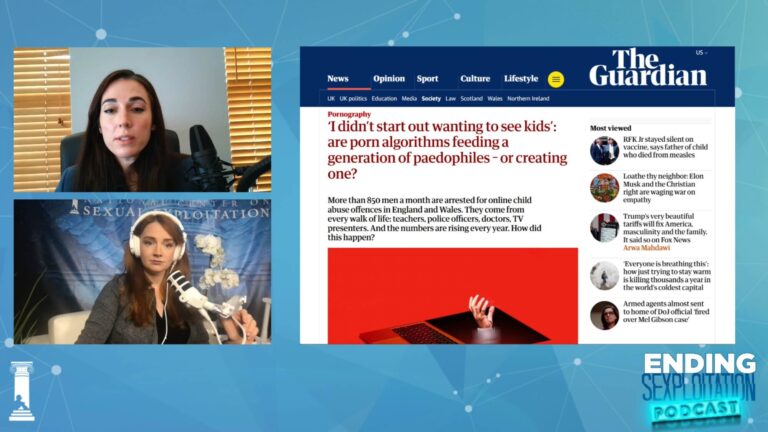Your child walks into a supermarket, convenience store, or bookstore. Are they able to buy pornography? The answer is no.
Most states have laws that prohibit the distribution of sexual material that is “harmful to minors.” In 1968, the Supreme Court held that it was permissible for New York to prohibit the sale of “girlie” magazines to a 16-year-old boy. The Court said that it was okay for New York to use a definition of obscene material that is unique for children. As a result, most states have acted to protect children from being exposed to pornography in an in-person setting.
What about online? In today’s connected world it’s even more important that there are safeguards to prevent children from being exposed to pornography. Yet in the online context, the Supreme Court has not been as deferential to the needs of communities to protect children.
A History of Legal Efforts to Protect Children from Exposure to Online Pornography
In 2004, the Court affirmed a lower court decision that the Child Online Protection Act was likely a violation of the First Amendment because it burdened the constitutional right of adults to view sexually graphic (but not obscene) material. The Supreme Court said that filters, rather than a criminal prohibition was a less restrictive means of achieving the governments interest. As a result of this decision, Ashcroft v. ACLU, there have been essentially no limits or restrictions preventing children from accessing pornography online for over twenty years.
But the States are pushing back. Beginning with Louisiana in 2022, many states have enacted laws requiring websites containing substantial amounts of pornography to use age-verification to prevent their platforms from distributing sexually graphic material to minors. So far, 19 states have such age-verification laws.
Unsurprisingly, the internet platforms that host pornography despise these laws. The “Free Speech Coalition,” an association of sexually oriented businesses, has filed lawsuits across the country attempting to prevent these laws from going into effect. In Texas, the Fifth Circuit Court of Appeals rejected their arguments and upheld an age-verification law. “The record is replete,” the Court wrote, “with examples of the sort of damage that access to pornography does to children.”
Download this resource about the harms of pornography on children
The Current Battle in the Supreme Court
Determined to continue delivering pornography to children without restriction, the pornography websites have appealed to the Supreme Court of the United States.
Texas is mounting a compelling defense of its law before the Court: “The gate-keeping function performed by the 1960s shopkeeper is now performed by websites using age-verification technology.” “Doctrinally,” Texas argues, “it makes no sense that a State can require an offline merchant to verify that a customer is not a child—à la [Ginsberg v. New York]—but cannot do the same for an online merchant.”
And the United States has also urged the Court to recognize that “the longstanding and widespread tradition of restricting minors’ access to harmful sexual material in the physical world suggests that content-based age-verification requirements are not inherently inconsistent with the First Amendment.”
Now a host of amicus—or “friend of the court”—briefs have been filed with the Supreme Court urging the Court to allow Texas’s age-verification law to stay in effect. The NCOSE Law Center filed a brief representing 15 Texas State Senators. That brief presents the catastrophic harm that online distributed pornography presents to children: “Once seen, pornography cannot be unseen. And once seen, online pornography can draw children into life-altering cascades of harm.”
The Supreme Court will hear oral arguments in this important case on January 15, 2025.


